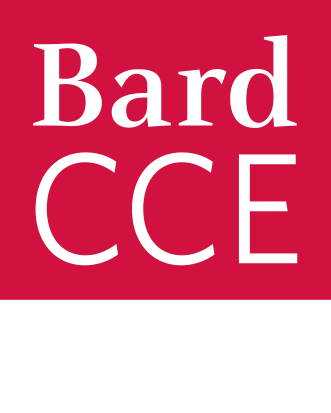"More than Virtual”: Online Student Leadership Conference Imparts Skills and Connections
Student writers Ariha Shahed and Sabawoon Durrani
October’s Virtual Student Leadership Conference (VSLC) was an enriching experience that brought together students from across Open Society University Network (OSUN) and the Bard International Network. Over two days, student attendees heard global perspectives on leadership, teamwork, and collaboration that equipped them with the skills and supportive connections they need to be most effective.
Learning Resilience
Moderators Zarlasht Sarmast of Afghanistan and Shadin Nasser of Palestine opened the conference by discussing the need for resilience in their own lives as they experienced learning while under conflict. An embodiment of the spirit of the conference, this was underlined by a keynote presented by Nafira Nayeem Ahmad, a Global Engagement Fellow from BRAC University in Bangladesh, who discussed “Leading with a Healthy Headspace.” Ahmad emphasized the importance of student leaders finding ways to maintain self-awareness and balance. She said maintaining mental well-being and staying grounded were foundational for strong leadership—a reminder that great leaders prioritize self-care so they can support their teams better.
Breakout sessions, the core of the conference, covered essential topics such as how to handle difficult discussions with an empathetic approach, led by Sabawoon Durrani of AUAF. Vishal Parkash ‘27 of Bard College Berlin explored the strengths of various leadership styles and how to adapt them effectively. Dareen Alhajaref ‘24 from Al-Quds Bard College spoke of the sensitivity required to build inclusive teams and Haneen Jarrad ‘25 (Al Quds Bard College), Ata Ullah (Hubs for Connected Learning), and Nguyên Dang (Parami University) presented on how to help students support strong cross-cultural communication in diverse spaces.
Virtual Format Permits Collective Impacts
VSLC’s virtual format especially promotes leadership development for students from regions facing political or social constraints. In some countries, access to leadership training is limited by conflict, restrictive laws, or economic challenges. The online nature of the conference breaks down these barriers, giving students worldwide access to a platform where they can share ideas, gain skills, and connect with peers across borders, thus democratizing knowledge.
Durrani said he facilitated two sessions because he believes in the power of “knowledge and the responsibility we all have as global citizens to lift one another up.” He also thinks the impact that collective learning can have on individuals and communities can be powerful, as evidenced with his work with Fekri Raghoon (Intellectual Reconstruction) in Afghanistan, helping to empower women and youth through education and critical thinking.
“The most interesting part of the conference was the immediate impact of the sessions on the students, which was both inspiring and promising,” said Durrani, whose first session on "Engineering Successful Co-working Mechanisms," allowed students to dive deep into strategies for navigating teamwork and productive collaboration. He said it felt “incredibly rewarding” to him when participant Sajjad Ahmad shared that "I was having issues with coworkers in my work environment and was about to lose my cool. Attending this conference session has helped me, and I'm now confident I can resolve the problems using the skills learned today."
Durrani said he is “already looking forward to similar opportunities where I can share my experiences and learn from others.” “Making new connections with students from all over the world, while imparting practical skills, underscored the global need for spaces like the VSLC,” he continued. “I strongly believe that the energy, discussions, and connections made here will have lasting effects not only on the attendees but also on my own journey as a facilitator and leader.”
One student attendee said, "It's a great opportunity to get inspired, meet amazing people who want to make a difference in the world, and learn techniques on how to become a leader and face challenges, including mental health issues like burnout." Another commented, "I feel more equipped to navigate conflict resolution and team motivation challenges after the conference."
Kitwanda Reeves, a student at the Bard MicroCollege at The Brooklyn Public Library in New York, said "The conference was more than virtual; it was a ‘global meeting of the moment’ to connect and communicate our collective purposes for a greater good."
Post Date: 11-01-2024
